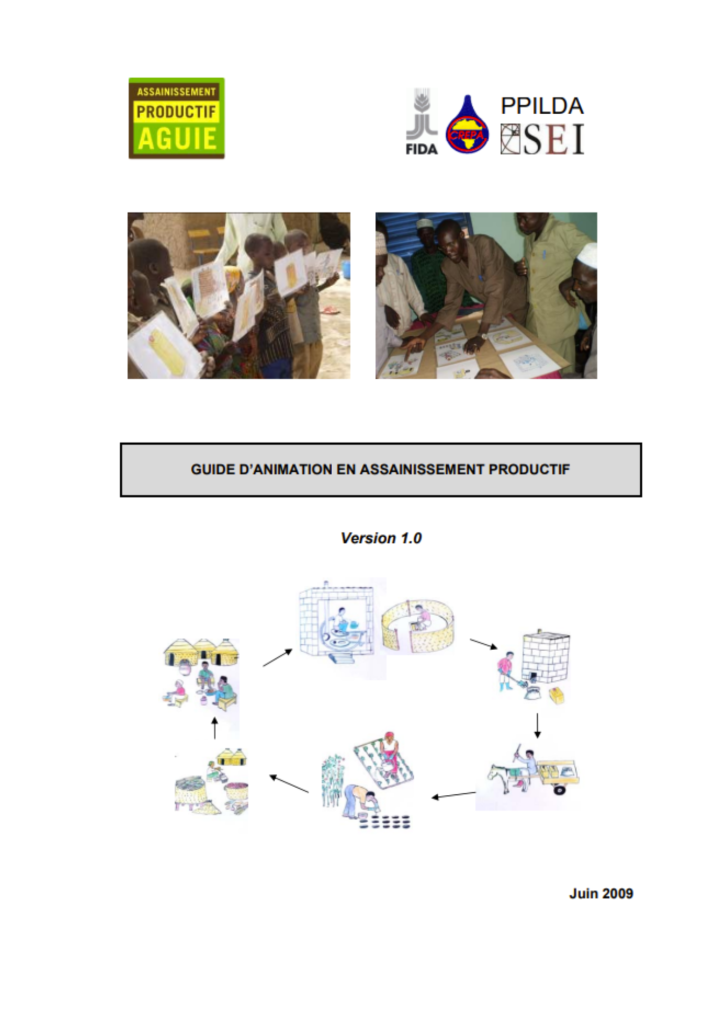Guide d’animation en Assainissement Productif Version 1.0 – Outil pour la formation et l’accompagnement communautaire PPILDA (Projet de Promotion de l’Initiative Locale pour le Développement à Aguié) (2009)
This practical guide was developed to support community facilitators and field animators in promoting productive sanitation practices in rural areas of Niger. Building on the PHAST (Participatory Hygiene and Sanitation Transformation) methodology, it provides participatory tools to help communities understand the health risks of poor excreta management and the agricultural value of hygienized urine (Takin Ruwa) and feces (Taki Busasché). The document explains the construction, operation, and maintenance of productive sanitation systems (composting and dry toilets), hygienization processes, and practical exercises such as barrier mapping, fertilizer circuits, and the three-pile card sorting technique to strengthen community engagement and sustainable soil fertility practices.
Bibliographic information
PPILDA (Projet de Promotion de l’Initiative Locale pour le Développement à Aguié) (2009). Guide d’animation en Assainissement Productif Version 1.0 – Outil pour la formation et l’accompagnement communautaire PPILDA; CREPA–Niger (Eau et Assainissement pour l’Afrique); FIDA (IFAD) - International Fund for Agricultural Development; SEI – Stockholm Environment Institute
Filter / Tags
Rural areasBehaviour changeGuidelines and manualsFrench
Downloads

Published in: 2009
Pages:
Publisher:
PPILDA; CREPA–Niger (Eau et Assainissement pour l’Afrique); FIDA (IFAD) - International Fund for Agricultural Development; SEI – Stockholm Environment Institute
Author(s):
PPILDA (Projet de Promotion de l’Initiative Locale pour le Développement à Aguié)
